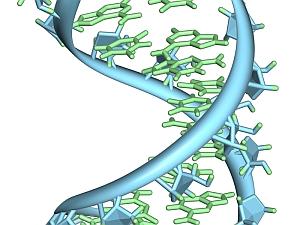5 March 2014. RXi Pharmaceuticals Corp., a biotechnology company in Westborough, Massachusetts, received a patent for its technology based on RNA-interference to treat skin scars, including surgical scars. Patent number 8,664,189 was awarded yesterday by the U.S. Patent and Trademark Office to seven inventors and assigned to RXi Pharmaceuticals.
RXi develops therapies with a technology harnessing RNA, the nucleic acid that sends genetic signals derived from an individual’s DNA to cells with instructions on their functions in the body. The technology uses a specific type of genetic instruction known as RNA-interference, a natural process that regulates the over-expression of proteins from a gene causing a disorder. The company’s therapeutics self-deliver interfering RNA to the affected cells, encouraging cells to take up the RNA, reducing obstacles from immune responses, and providing long-lasting cellular activity.
The patent covers self-delivered RNA-interference addressing connective tissue growth factor, a protein that encourages growth of fibroblasts and collagen, which are useful for healing wounds, but when overproduced, can lead to the formation of scar tissue. The company’s lead product, code-named RXI-109, is an RNA-interference therapy designed to treat surgical scars.
An early-stage clinical trial shows RXI-109 was well-tolerated at multiple dosage levels, and reduced production of connective tissue growth factor in treated areas. Two intermediate-stage clinical trials are now recruiting patients testing RXI-109 against a placebo with surgery to remove keloid scars resulting from earlier surgery or burns, and with abdominal scar revision surgery, following hysterectomy or Cesarean-section delivery.
RXi’s founder is Craig Mello, a professor of molecular medicine at University of Massachusetts medical school in Worcester, who still chairs the company’s scientific advisory board. Mello shares the 2006 Nobel Prize in medicine for his work on RNA-interference. RXI was spun-off from Galena Biopharma in 2012.
Read more:
- Imaging Technique Captures RNA Viral Infections in Progress
- Early Clinical Trial Shows RNA Therapy Lowers Cholesterol
- Early Trial Shows Safety, Action of RNA Scar Treatment
- Clinical Trial Underway to Test MicroRNA Cancer Therapy
- AstraZeneca Licenses Messenger RNA Therapy Technology
* * *


 RSS - Posts
RSS - Posts
You must be logged in to post a comment.